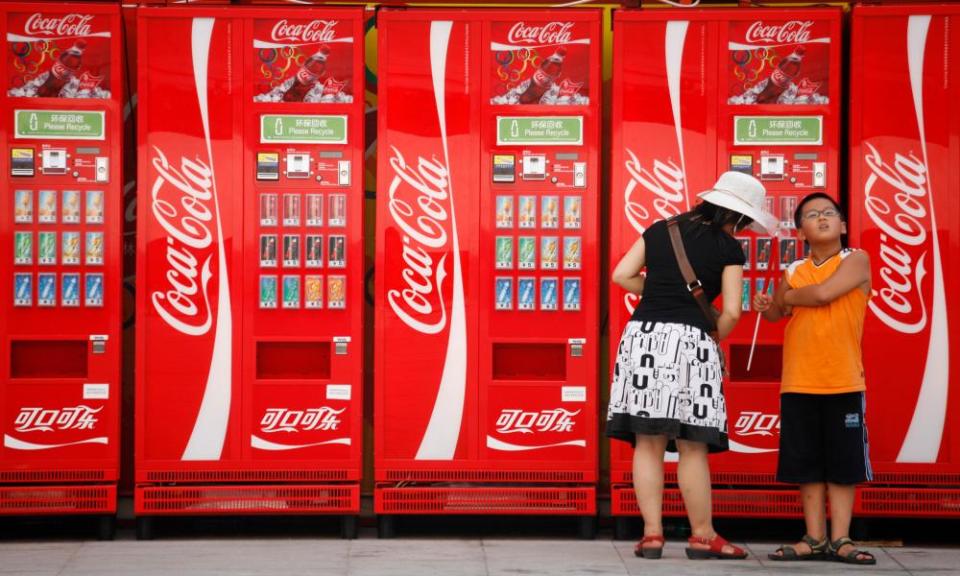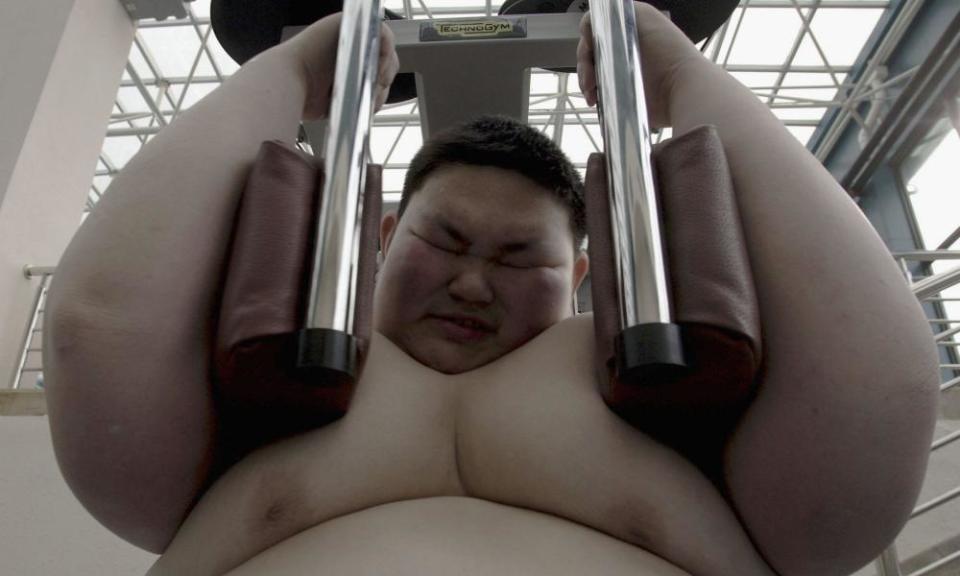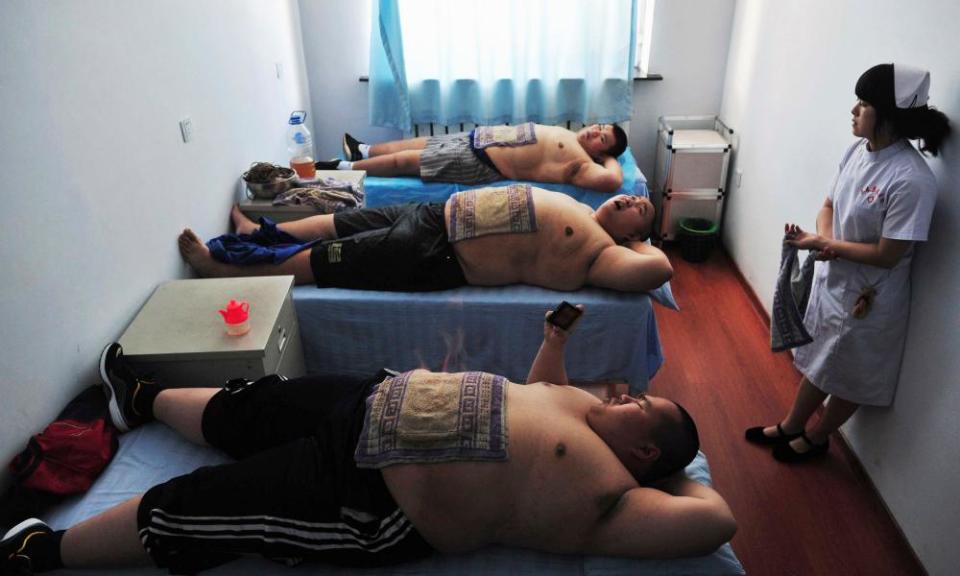Coca-Cola influences China’s obesity policy, BMJ report says

The Coca-Cola Company has shaped China’s policies towards its growing obesity crisis, encouraging a focus on exercise rather than diet and thereby safeguarding its drinks sales, an academic investigation has alleged.
Susan Greenhalgh, a Harvard academic and China scholar, says Coca-Cola has exerted its influence since 1999 through a Chinese offshoot of an institute founded in the US by the then Coca-Cola vice-president Alex Malaspina with substantial company funding. The International Life Sciences Institute (ILSI) has been heavily criticised in the US and Europe for promoting exercise and downplaying the need for people to cut down on excessive sugary drinks.
China has a serious and growing obesity problem: 42.3% of Chinese adults were overweight or obese in 2011, up from 20.5% in 1991. Its 1.4 billion people constitute Coca-Cola’s third-largest market by volume.
ILSI-China, says Greenhalgh, has influence in government circles. It had been led by Chen Chunming, who died last year. Chen was a well-connected nutritionist who had earlier been president of the Chinese academy of preventive medicine, a technical unit under the ministry of health. ILSI-China is funded by a dozen companies including Nestlé, McDonald’s and PepsiCo, but Coca-Cola has had the biggest involvement, says Greenhalgh.
In China, ILSI is seen as “a bridge builder between government, academia and industry, providing the latest scientific information for policy decisions on nutrition (especially obesity and early childhood development), food safety and chronic disease prevention and control,” Greenhalgh writes in the British Medical Journal.
In a series of interviews, Chen had told Greenhalgh that ILSI-China “does not just hold conferences; it puts scientific evidence into policy”.

The BMJ paper says that since about 2004, Coca-Cola in the US had been advocating for “healthy, active lifestyles”, promoting the message that all food and drink were part of a healthy diet and that to avoid obesity what mattered was how much you moved. It even claimed there were health benefits to sugar-sweetened fizzy drinks.
The message was promulgated in China through ILSI-China, the BMJ paper says. Between 1999-2015 ILSI-China’s obesity activities shifted from a focus on nutrition to physical activity, in line with Coca-Cola’s position that an active lifestyle was the key to tackling obesity. Tough measures recommended by the World Health Organization – such as taxing sugary drinks and restricting food advertising to children – were missing. National plans and targets emphasised physical fitness over dietary restrictions, in line with the drinks company’s “energy balance” perspective.
Obesity meetings sponsored or co-sponsored by ILSI-China were packed with presentations by experts with financial ties to Coca-Cola or ILSI with a focus on the science of physical activity rather than nutrition.
“In putting its massive resources behind only one side of the science, and with no other parties sufficiently resourced to champion more balanced solutions that included regulation of the food industry, the company made China safe for Coke,” says Greenhalgh.
The global nutrition expert Prof Barry Popkin, who has worked in China for decades, said he was well aware of ILSI-China’s influence. “Over a three-decade period ILSI-China, along with the strong support of Alex Malaspina and Coke funding, did more to stop a number of healthy eating-related policy initiatives that would have helped to prevent the epidemic of obesity, diabetes and hypertension China is experiencing in the most insidious manner. I personally saw many regulatory initiatives stymied that would have helped prevent the very rapid growth of consumption of junk foods and sugary beverages,” he said.
In a statement, ILSI said it was a transparent, non-profit organisation comprising 17 entities including that in China. It said it believed that scientists from industry, government, academia and other sectors should work together and did not lobby or make policy recommendations.

“ILSI does not profess to have been perfect in our 40-year history. The journey to best-in-class nutrition and food safety science research has been a circuitous one. Not surprisingly, there have been bumps along the way. This is why ILSI has analysed best practices and has committed to ensuring scientific integrity in nutrition and food sector research,” it said in a statement. “We would also like to note that numerous experts named in the BMJ article are no longer employed by or affiliated with ILSI.”
Coca-Cola said it recognised the health problems caused by too much sugar and was working on ways to reduce the calories in its drinks around the world. “In China, we are committed to offering a full and growing portfolio of diverse beverage choices that cater to evolving consumer needs,” it said, which included no-sugar and low-sugar options.
Coca-Cola said it had listened closely to the public health community and other stakeholders about how it could help support the fight against obesity in a credible and transparent way. “In 2015 we made a commitment to publicly disclose our financial support of health and wellbeing-related scientific research and partnerships.
“In addition, the company decided in 2017 not to provide, either directly or through a third party (such as a trade association), all of the funding for wellbeing scientific research. The Coca-Cola Company does not conduct its own research on health and wellbeing. Rather, we support research efforts by independent and respected research institutions and universities. Under our guidelines, we will provide financial support for such research only if a non-Coca-Cola entity funds at least 50% of the cost.”

 Yahoo Finance
Yahoo Finance 